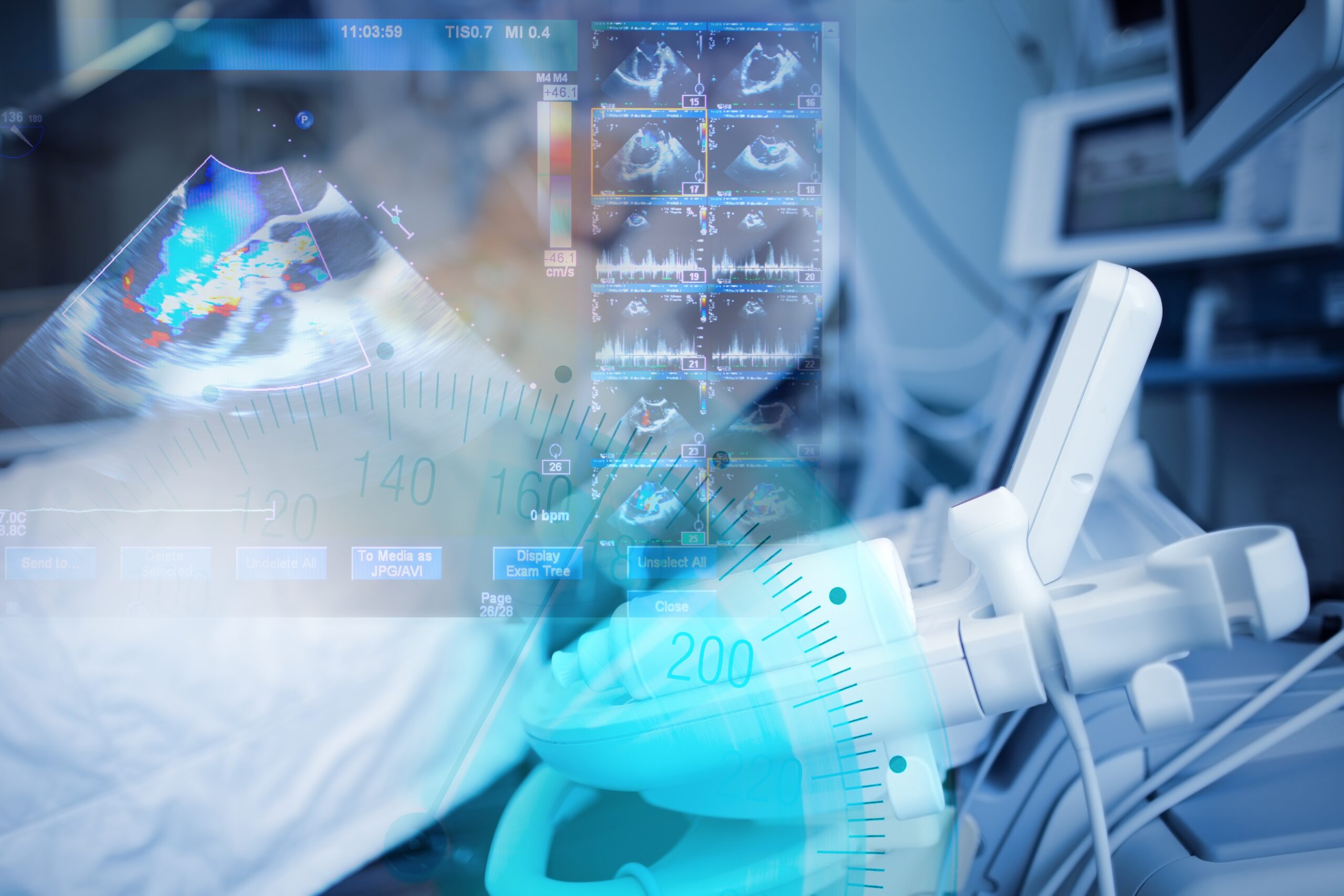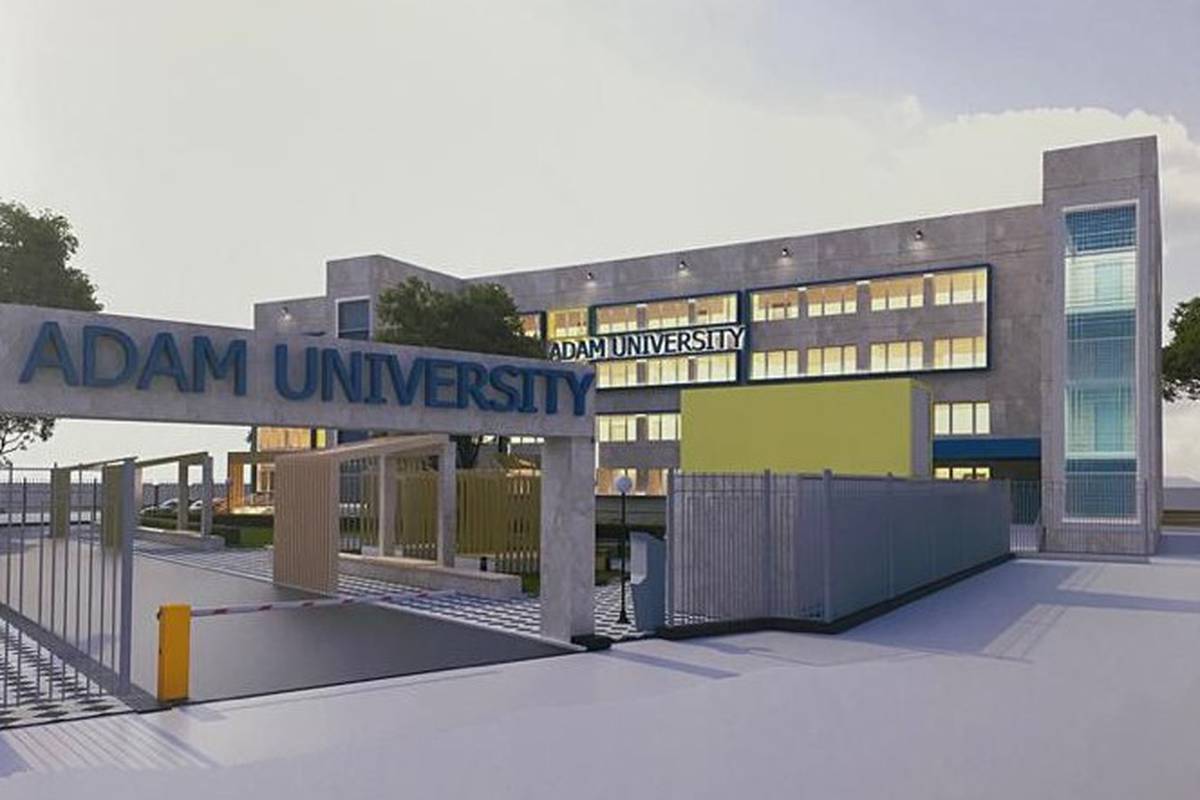
☝️ At a glance
- Diagnostic medical sonography (ultrasound) is a growing field in India, requiring knowledge of ultrasound technology to diagnose medical conditions.
- Educational paths include B.Sc. in Medical Imaging, diplomas in ultrasonography, and postgraduate degrees in radiology or sonography.
- Specializations such as obstetric, vascular, or cardiac sonography increase career opportunities and earning potential.
- Ultrasound doctors can work in hospitals, diagnostic centers, and private practices, with salaries ranging from ₹2.5–₹12 lakh annually depending on experience and specialization.
The field of diagnostic medical sonography, commonly referred to as ultrasound technology, is a rewarding and growing career path in India’s healthcare field. Ultrasound doctors, also known as diagnostic medical sonographers, play a crucial role in diagnosing medical conditions by using high-frequency sound waves to capture images of internal organs, blood vessels, and tissues.
This guide provides an overview of how to become ultrasound doctor (or registered diagnostic medical sonographer) in India, including eligibility criteria, educational requirements, fees, subjects, syllabus, duration, and career scope.

Become a global doctor with MBBS abroad!
Studying abroad can be affordable and stress-free with futureMBBS:
- World-recognized universities with English-taught programs
- On-site support in partner university cities
- Guaranteed placements & internships for hands-on experience
From selecting universities and supporting you with the application process to orientation and finding accommodation – we are at your side.
Steps to become an ultrasound doctor in India
1. Understand the role and responsibilities
Before starting a career as a diagnostic medical sonographer, it’s essential to understand the responsibilities involved. These include:
Operating ultrasound machines to capture diagnostic images.
Analyzing and interpreting ultrasound scans for abnormalities.
Maintaining detailed patient records while ensuring comfort during ultrasound procedures.
Collaborating with physicians and radiologists to diagnose medical conditions.
Keeping updated with advancements in ultrasound physics and imaging techniques.
2. Meet the eligibility criteria
To become an ultrasound doctor in India, you must fulfill certain requirements:
Educational Background: A Class 12 qualification with Physics, Chemistry, and Biology (PCB) is mandatory.
Age Requirement: Most programs require students to be at least 17 years old at the time of admission.
Entrance exam: There are no entrance examinations for pursuing ultrasound courses. The admissions are based on merit.
3. Pursue relevant education
There are several educational pathways in India to enter this medical field, depending on your career goals:
Sonography courses after 12th
Students can enroll in diploma or undergraduate programs to gain expertise in ultrasound technology. These programs are offered by many institutions and provide excellent opportunities for those interested in medical imaging and radiology. Below is a list of popular sonography courses, their eligibility criteria, and duration:
Course | Eligibility | Duration |
|---|---|---|
B.Sc Medical Imaging Technology | Class 12 with a minimum of 50% marks, with PCB as the subject | 4 years |
B.Sc Medical Lab Technology | Class 12 with a minimum of 50% marks, with PCB as the subject | 3 years |
B.Sc in Radiology | Class 12 with a minimum of 50% marks, with PCB as the subject | 3 years |
Ultrasound Diploma Course | Class 12 with a minimum of 50% marks, in any stream | 6 months |
Diploma in Radiography | Class 12 with a minimum of 50% marks, in any stream | 2 years |
4. Gain clinical experience
Hands-on training is critical. Programs include internships or clinical training at hospitals or diagnostic centers to develop practical skills. This ensures you're ready to handle real-world scenarios involving non-invasive imaging and patient care.
5. Obtain certification
In India, professionals performing ultrasound scans must comply with the PCPNDT Act, 1994. While certifications from organizations like the American Registry for Diagnostic Medical Sonography (ARDMS) or Cardiovascular Credentialing International (CCI) are optional, they can boost global career opportunities.
6. Specialize in a field
Specialization increases earning potential. Popular areas in India include:
Obstetric and Gynecologic Sonographers: Focus on pregnancy and reproductive health.
Vascular Sonographers: Specialize in imaging blood flow and vascular abnormalities.
Cardiac Sonographers: Use echocardiography to image the heart.
Musculoskeletal Sonographers: Diagnose issues in the human body, including joints and muscles.
Postgraduate degrees or fellowships
MBBS graduates can pursue advanced degrees like MD/DNB in Radiology or specialized fellowships in musculoskeletal sonography or obstetric and gynecologic sonography.
Ultrasound courses

B.Sc Medical Imaging Technology
The Bachelor of Science in Medical Imaging Technology is a four-year undergraduate program designed for students who have completed their Class 12 with a minimum of 50% marks in Physics, Chemistry, and Biology (PCB). This course focuses on training students to operate advanced imaging equipment like X-rays, CT scans, and MRIs. It equips students with the skills needed to capture detailed images of internal body structures, assisting doctors in diagnosing and treating various medical conditions. Graduates from this program are well-prepared to work in hospitals, diagnostic labs, and imaging centers or even pursue higher studies in the field of radiology.
B.Sc Medical Lab Technology
The Bachelor of Science in Medical Lab Technology is a three-year undergraduate program available to students who have scored at least 50% marks in their Class 12 examinations with PCB as their subject. This course focuses on laboratory techniques, including analyzing body fluids, tissues, and other medical samples. Students learn to perform diagnostic tests, operate laboratory equipment, and interpret results accurately. Upon completion, graduates can work as medical lab technologists in hospitals, diagnostic labs, research facilities, or pharmaceutical companies, playing a critical role in patient diagnosis and care.
B.Sc in Radiology
The B.Sc in Radiology is a three-year undergraduate course for students with a minimum of 50% marks in their Class 12 exams with PCB. This program offers in-depth knowledge about radiographic imaging techniques such as X-rays, ultrasounds, and fluoroscopy. Students gain both theoretical and practical expertise in producing and interpreting radiological images to assist in diagnosing illnesses. Graduates of this program can pursue careers as radiographers or imaging technologists in hospitals, imaging centers, and research institutions.
Ultrasound Diploma Course
The Ultrasound Diploma Course is a short-term program lasting six months, ideal for students who have completed Class 12 with a minimum of 50% marks in any stream. This course provides specialized training in using ultrasound technology to produce images of internal organs and soft tissues. Students learn the basics of sonography, including equipment handling, imaging techniques, and patient care. This diploma opens up opportunities to work as ultrasound technicians in diagnostic centers, maternity clinics, and hospitals, making it an excellent option for a quick entry into the healthcare industry.
Diploma in Radiography
The Diploma in Radiography is a two-year program designed for students who have passed Class 12 with at least 50% marks in any stream. This course focuses on teaching students the fundamentals of radiographic imaging and radiation safety. It trains them to handle radiology equipment and assist in diagnostic imaging procedures. Graduates can work as radiography technicians in hospitals, clinics, or diagnostic labs, supporting healthcare providers with accurate imaging services essential for diagnosing and treating patients.
Top colleges in India for ultrasound courses
Private colleges
College name | Course offered | Duration | Fee (approx.) |
|---|---|---|---|
Manipal University, Manipal | B.Sc. Medical Imaging Technology | 3 years | ₹2.5-₹3 lakh per year |
Amity University, Noida | B.Sc. in Radiology and Imaging Technology | 3 years | ₹1.5-₹2 lakh per year |
SRM Institute of Science and Technology | B.Sc. Medical Imaging Technology | 3 years | ₹1.8-₹2.2 lakh per year |
JSS Academy of Higher Education and Research, Mysore | B.Sc. Medical Imaging Technology | 3 years | ₹1.5-₹2 lakh per year |
Christ University, Bangalore | B.Sc. Medical Imaging Technology | 3 years | ₹1.2-₹1.8 lakh per year |
Government Colleges
College name | Course offered | Duration | Fee (approx.) |
|---|---|---|---|
All India Institute of Medical Sciences (AIIMS), New Delhi | B.Sc. in Radiography and Imaging Technology | 3 years | ₹1-₹2 lakh per year |
King George’s Medical University, Lucknow | B.Sc. Medical Imaging Technology | 3 years | ₹50,000-₹1 lakh per year |
Post Graduate Institute of Medical Education and Research (PGIMER), Chandigarh | B.Sc. Radiography and Imaging Technology | 3 years | ₹50,000-₹1 lakh per year |
Madras Medical College, Chennai | B.Sc. Radiology and Imaging Technology | 3 years | ₹20,000-₹50,000 per year |
Government Medical College, Nagpur | B.Sc. Medical Imaging Technology | 3 years | ₹40,000-₹80,000 per year |
These fees are approximate and may vary based on the institution’s fee structure and location.
Course subjects
Subject | Description |
|---|---|
Anatomy and Physiology | Study of human body structures and their functions for interpreting ultrasound images. |
Medical Imaging Technology | Introduction to imaging techniques used in ultrasonography and how they work. |
Ultrasound Physics | Understanding sound waves and their interaction with tissues for imaging purposes. |
Clinical Practice and Training | Hands-on practice of ultrasound procedures and analyzing scan results. |
Patient Care and Communication | Ensuring patient comfort and explaining procedures and results effectively. |
Specialized Ultrasound Techniques | Training in specialized techniques like obstetric, musculoskeletal, and cardiac sonography. |
Job profiles and top recruiters
Job Profile |
|---|
Diagnostic Medical Sonographer |
Obstetric and Gynecological Sonographer |
Vascular Sonographer |
Cardiac Sonographer (Echocardiography) |
Musculoskeletal Sonographer |
Sonography Technician |
Ultrasound Imaging Specialist |
Top Recruiters |
|---|
Hospitals and Healthcare Facilities |
Diagnostic Centers |
Maternity Clinics |
Research Institutes |
Freelancing/Private Practice |
Salary expectations for ultrasound Doctors in India
In India, the pay scale for diagnostic medical sonographers varies based on experience, qualifications, and location.
Typical Pay Scale
Entry-level Sonographer: ₹2.5 - ₹4.5 lakh per annum
Mid-level Professional: ₹5 - ₹8 lakh per annum
Specialized Sonographer: ₹8 - ₹12 lakh per annum or higher in private sectors.
Job Profiles | Average Salary (expected) |
|---|---|
Vascular sonographer | Rs. 10-12 lakhs p.a. (Approx.) |
Neuro sonographer | Rs. 7-8 lakhs p.a. (Approx.) |
Cardiac sonographer | Rs. 4-5 lakhs p.a. (Approx.) |
X-Ray Technician | Rs. 1-2 lakhs p.a. (Approx.) |
Radiographer | Rs. 2-3 lakhs p.a. (Approx.) |
Ultrasound Technician | Rs. 3-6 lakhs p.a. (Approx.) |
Specialization and experience in metropolitan cities can result in higher pay scales.

Study medicine abroad with 100% support!
futureMBBS offers full support to make your dream of studying medicine abroad a reality.
- Hassle-free admission guidance
- Fast-tracked visa processing
- Post-arrival support, including accommodation assistance
Scope of ultrasonography in India and Abroad
The field of Ultrasonography is rapidly growing in India and abroad due to advancements in medical imaging and increasing demand for accurate diagnostics. In India, ultrasonographers are highly sought after in hospitals, diagnostic centers, maternity clinics, and private practices. The need for trained professionals continues to rise, particularly in specialized areas like obstetrics, cardiology, and musculoskeletal imaging.
Globally, the scope of ultrasonography is expanding as more healthcare facilities adopt non-invasive imaging methods for accurate diagnostics. Countries like the United States, the UK, Canada, and Australia offer promising career opportunities with competitive salaries, especially for those with specialization and certifications. Additionally, ultrasound doctors may find opportunities in research, education, and medical device industries.
Skills required to excel in diagnostic sonography
To succeed in this field, you need a combination of technical and interpersonal skills:
Technical Expertise: Proficiency in using ultrasound equipment and interpreting images.
Attention to Detail: Ability to spot abnormalities in scans.
Communication Skills: Clearly explaining procedures and findings to patients and physicians.
Compassion: Ensuring patients feel comfortable during procedures.
Problem-Solving Skills: Diagnosing medical issues based on imaging results.
Conclusion
Becoming an ultrasound doctor or sonographer offers immense potential in India’s healthcare industry. With the right education, clinical experience, and certifications, you can build a fulfilling career. Whether specializing in obstetric sonography, vascular imaging, or clinical ultrasound, your expertise will improve patient care and diagnostic outcomes. Start your journey today by exploring sonography courses and achieving your goals in the medical imaging field.
Your medical career abroad starts here!
Thinking of pursuing MBBS abroad? Don’t just dream it, do it!
Start your MBBS journey!Frequently asked questions (FAQs)
How can I become an ultrasound doctor in India?
To become an ultrasound doctor, you need to complete Class 12 with PCB, pursue relevant education such as a B.Sc in Medical Imaging or a diploma in ultrasonography, gain clinical experience, and obtain certification if needed.
Which degree is best for ultrasound?
A B.Sc. in Medical Imaging Technology is ideal for a comprehensive understanding of ultrasound, radiography, and other diagnostic imaging techniques.
Is MBBS necessary for sonologists?
No, an MBBS degree is not required to become a sonologist. A diploma or a degree in medical imaging or sonography is sufficient.
What skills are essential for an ultrasound doctor?
Technical expertise in operating ultrasound machines, attention to detail, strong communication skills, compassion for patients, and problem-solving abilities are essential for success.
What is the salary of an ultrasound doctor in India?
The salary ranges from ₹2.5–₹4.5 lakh per annum for entry-level professionals, ₹5–₹8 lakh for mid-level, and ₹8–₹12 lakh or higher for specialized sonographers, depending on experience and location.
What specializations can I pursue in ultrasound?
You can specialize in areas such as obstetrics and gynecology, vascular sonography, cardiac sonography, and musculoskeletal sonography.
What is the duration of ultrasound courses in India?
Courses vary in duration. B.Sc. programs take 3–4 years, diploma programs take 1–2 years, and certificate courses last 6–12 months.
Are there any global certification options for ultrasound doctors?
Yes, certifications like ARDMS (American Registry for Diagnostic Medical Sonography) can enhance career prospects, especially for those looking to work internationally.




